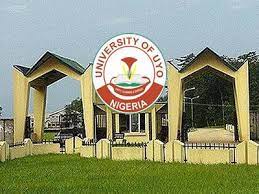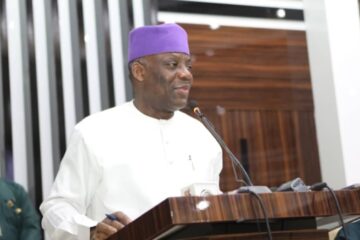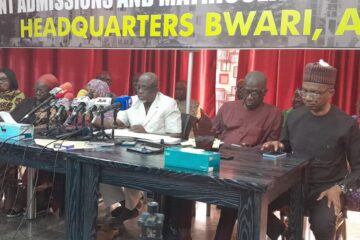Education growth: PEAN seeks 26% budgetary allocation, frowns on early marriage

The Philosophers of Education of Education Association of Nigeria (PEAN) has said the education section needs revival.
It stated that such could start through proper funding by government, adding that 26% budgetary allocation recommended by UNESCO should be adopted,
The group also pointed out that community involvement, security and peace, full autonomy to the tertiary institutions, avoidance of deregulation and politicization should be realized.
PEAN also said early marriage that prevents children from having quality tertiary education should be discouraged, adding that such move would prevent dropping out of schools.
The group stated these at the end of its 42nd and 43rd conference held between October 24 and 27, 2023, at the University of Uyo, Akwa Ibom State.
The conferences, with the theme, ‘Equity, Quality and Autonomy of Nigerian Tertiary Education’, looked at important issues in education and national development using philosophical approach, pointed out that there “is a challenge of tertiary education policy implementation. The finest policy without implementation is like a cloud that does not result in rainfall needed for growth of plants in a community.
The group added that other challenges that hamper realization of equitable, qualitative and autonomous tertiary education include deregulation, commercialization, poor funding of education, facilities, lack of implementation, lack of technology-based learning, poor funding, and insecurity, among others.
At the end of the four-day event PEAN came out with a Communiqué on what could be done to reverse the slide in the education sector.
The document that was signed by Prof. Kola Babarinde, President, PEAN; Dr. Patrick Akinsanya, Gen. Secretary, and Prof. Sunday Osaat, Chairman, Communique Committee & Editor, PEAN (NJEP), reads, “Based on the above observations, the following recommendations were made:
- Proper implementation of the tertiary education policies should be in place with vivid pursuit of equitable, qualitative and autonomous tertiary education.
- Revival of education sector through proper funding by government (26% budgetary allocation recommended by UNESCO should be adapted), community involvement, security and peace, full autonomy to the tertiary institutions, avoidance of deregulation and politicization should be realized.
- The curriculum of tertiary education in Nigeria should be revisited to restore the expunged contents of tertiary education for holistic human development. This will enhance quality education.
- To solve the problem of drug addiction, parents, teachers and counselors need to put in their best. Parents need to up-bring their children properly in a conducive environment and ensure that the children have good company. The teachers should be good examples. The counselors need to apply their techniques to solve this psychological problem. This is also to prevent or reduce rate of drop-outs in tertiary institutions.
- Early marriage that prevents children from having quality tertiary education should be discouraged. Dropping out of schools can be prevented this way.
- Government, Non-Governmental Organizations (NGOs) and wealthy (financially capable) individuals need to help the members of the society that are faced by financial hardships which do not allow them to enroll their children in the tertiary institutions. Government personnel should desist from financial corruption that impoverish the society and incapacitate them to fund their children’s tertiary education.
- Freedom for critical thinking, creativity, democracy and divergent views should be encouraged in tertiary education in Nigeria to ensure autonomous, equitable and quality education.
- Love, mutual understanding, and peaceful coexistence should be promoted for social integration and unity.
- Personal teaching of philosophy, pedagogical content knowledge, general pedagogical knowledge, pedagogical skills and effective communication need to be promoted in the policy, curriculum, pedagogy and evaluation of teaching exercise. The teachers / educators should focus more on building teacher trainees with working personal teaching philosophy, pedagogical content knowledge, general pedagogical knowledge, pedagogical skills and effective communication capacity.
- To make tertiary education qualitative in terms of relevance to the traditional value system of Nigeria and solve the problem of moral decadence and social vices in the country, there is need for stronger emphasis on traditional values that promote humaneness in the policy and practice of tertiary education in Nigeria.
- Quota system used for the distribution of educational places and admission needs to be used with caution in order to ensure quality output in the system of education in Nigeria. Therefore, fair competition is viewed as a more viable option in this regard.
- It is important that technology-enabled learning is highly promoted in tertiary education to enhance its quality for sustainable development. Quality of tertiary education of a country becomes high when it can compete favourably with the tertiary education of other countries. To make this happen, proper knowledge of the Information and Communication Technologies (ICTs) is indispensable.”










